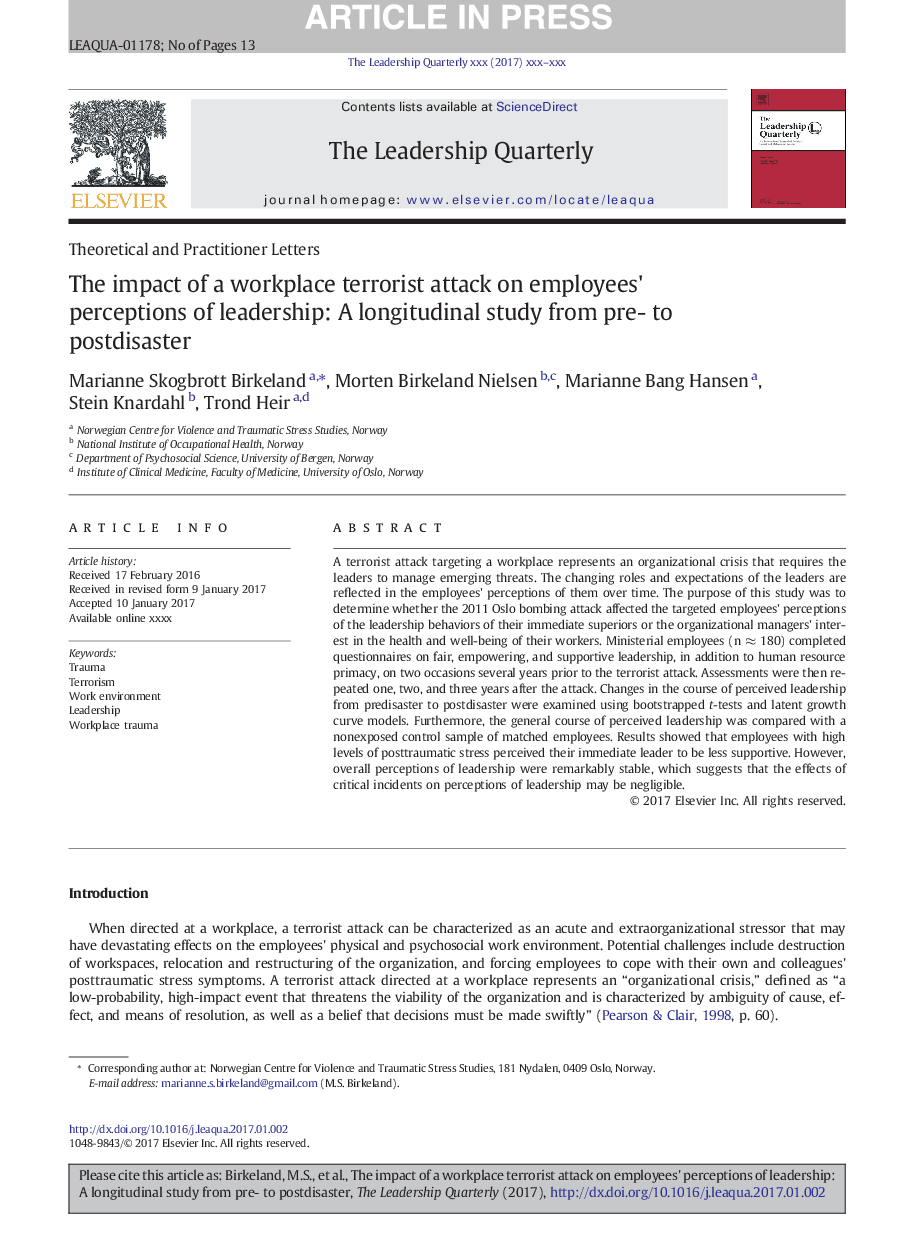ترجمه فارسی عنوان مقاله
تأثیر یک حمله تروریستی در محل کار بر ادراک کارکنان از رهبری: یک مطالعه طولی از قبل و بعد از مدتی
عنوان انگلیسی
The impact of a workplace terrorist attack on employees' perceptions of leadership: A longitudinal study from pre- to postdisaster
| کد مقاله | سال انتشار | تعداد صفحات مقاله انگلیسی |
|---|---|---|
| 160192 | 2017 | 13 صفحه PDF |
منبع

Publisher : Elsevier - Science Direct (الزویر - ساینس دایرکت)
Journal : The Leadership Quarterly, Volume 28, Issue 5, October 2017, Pages 659-671
ترجمه کلمات کلیدی
تروما تروریسم، محیط کار، رهبری، آسیب کار محل کار،
کلمات کلیدی انگلیسی
Trauma; Terrorism; Work environment; Leadership; Workplace trauma;

